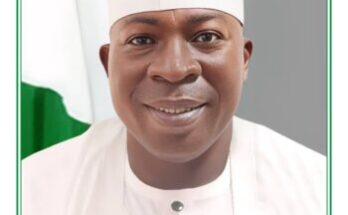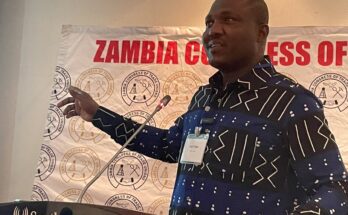Ameh Zion is the founder of the Mandate Health Empowerment Initiatives (MHEI), a non-governmental organisation, based in Abuja. He told KEHINDE OSASONA in this interview his focus on the menace of drug abuse in the country, the organisation’s roles, challenges, and what government can do to reverse the trend.
What exactly is your organisation’s mandate?
Our organisation is non-governmental, championing campaign around mental health; we are engaged in some experimental projects at the grassroots, increasing the awareness, sensitisation at community levels, just as we take on conversation around mental health reforms.
It is our aspiration that Nigerians suffering from mental health should be able to access health facilities. We are also working tirelessly and partnering with the federal ministry of health and agencies, to ensure that Nigerians know their mental health status.
This approach, I must say here, was taken deliberately by MHEI in order to help curb stigmatisation and discrimination affecting people living with mental disorder in the country.
Is mental disorder an epidemic in Nigeria?
You see, I can tell you categorically without mincing words that mental health as of today has become an epidemic and a major concern in the health sector in Nigeria. This is the more reason mental disorder and sufferers should be our priority.
Although, it may not have got the deserved priority and attention from professionals, stakeholders and government in terms of coming up with policy dealing with the rights of the victims, I still put it to you that it remains a very serious issue.
As we speak today, depression remains a leading risk factor and over 300 million people are said to be affected globally.
Who is vulnerable?
Let me say here that when it has to do with the issue of mental health, everybody, whether rich, poor or even people living below poverty line, are vulnerable. It is no respecter of race or community.
And that is to tell you that the pre-disposing factors of mental illness are not something that you can just push aside. It is something that everybody must be consciously aware of.
Going by the World Health Organisation (WHO) definitions, mental health is when an individual has the capacity to realise his ability or potential and being able to cope with or manage daily stress, remains productive and has the ability to contribute immensely to their community. So, from this definition, you can see that when we talk of vulnerability, everyone is vulnerable.
As it were, the society must know via constant awareness that there is an aspect of their health called mental health, and that they must begin to pay attention to. Not only that, they should also seek to get help from hospitals, permanent health centres and integrated mental health services to get medical psychiatric and mental health assistance.
Any collaboration with development partners or funding organisations yet?
Like I stated earlier, the issue of mental health did not gain much attention or priority before relevant agencies and organisations until recently, I think at the 2017 World Health Day, when international development partners started showing concern about depression.
Now, international development partners, agencies, governments are beginning to see that look; indeed, the mental health, an aspect of human health that is very important to productivity should be taken seriously.
As I speak to you, they now want to have conversation around mental health, support programmes and sensitisation like they do for some notable communicable diseases plaguing global communities.
Your challenges
The most daring ones particularly relating to our operations at Mandate Health has been the issue of funding and right platforms to speak about mental health the more.
We want to be able to further educate people about it across our hospitals in Nigeria and stress the fact that rate of mental disorder is becoming alarming and to equally create an awareness in that direction.
More challenging is the fact before some of these hospitals could not just give you audience; there has to be an approval by authority in the FCTA and all that. So, it has been equally challenging. I must also say that there have been some improvements.
Going forward, we are trying to roll out high-profile advocacy to some of the stakeholders in the seat of power, so that when they have the understanding of the importance of mental health, they can cascade it down to some of the officers in places like hospitals, NYSC camps, communities, and even schools.
What role do you expect government to play?
The truth is that the role of government is essential here. We cannot but re-emphasise the role of government.
The government for us possesses the biggest hammer that can drive the nail on this serious epidemic ravaging the productive population of this country.
In doing that, they must ensure that the mental health bill is initiated, deliberated upon, speedily passed and seen to be in operation in the interest of the public. We need a mental health bill in Nigeria; the one of 1918 that was reviewed in 1958 is no longer valid or tenable. In fact, it can’t protect the human rights and in today Nigeria, we need a serious reform in mental health and the only person that can salvage the situation for all is the federal government.
Whatever the NGOs do would just be a drop in the ocean. Until we have a working national document, strategy, policies and programme, we have not started anything.
Is the media culpable in not creating enough awareness?
Thank you very much for that question. I won’t say that the media are culpable. Truth is you cannot report what you do not know or have proper knowledge of. Again, the media are not medical practitioners.
However, thankfully, it is good enough now that the media is involved via this training organised by Mandate Health and funded by European Union and the United Nations.
More importantly, we need to keep campaigning, creating an awareness and sensitise all stakeholders including, the media on what drug use is; drug dependency and drug treatments and even drug care; how can I involved in it, what can I help on this? That is the essence of the training just organised for the media across print, broadcast and online so that they can help in driving it.



